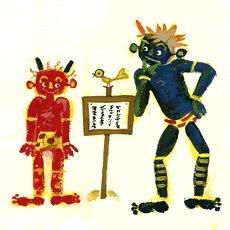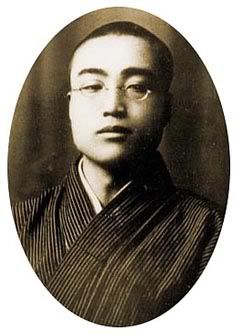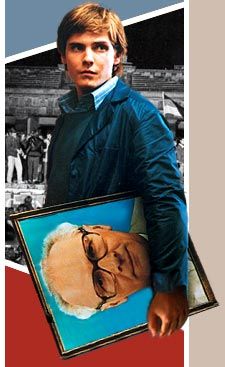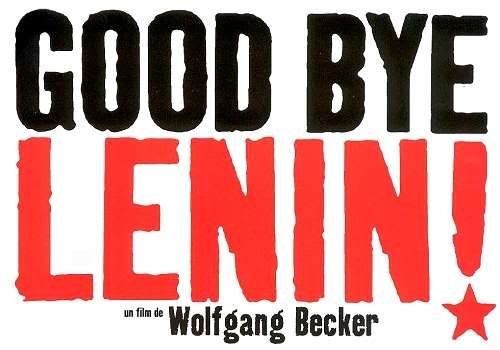La paradoja andante
por Eduardo Galeano
Cada día, leyendo los diarios, asisto a una clase de historia. Los diarios me enseñan por lo que dicen y por lo que callan. La historia es una paradoja andante. La contradicción le mueve las piernas. Quizá por eso sus silencios dicen más que sus palabras y con frecuencia sus palabras revelan, mintiendo, la verdad. De aquí a poco se publicará un libro mío que se llama Espejos. Es algo así como una historia universal, y perdón por el atrevimiento. “Yo puedo resistir todo, menos la tentación”, decía Oscar Wilde, y confieso que he sucumbido a la tentación de contar algunos episodios de la aventura humana en el mundo, desde el punto de vista de los que no han salido en la foto. Por decirlo de alguna manera, se trata de hechos no muy conocidos. Aquí resumo algunos, algunitos nomás. - - - Cuando fueron desalojados del Paraíso, Adán y Eva se mudaron al Africa, no a París. Algún tiempo después, cuando ya sus hijos se habían lanzado a los caminos del mundo, se inventó la escritura. En Irak, no en Texas. También el álgebra se inventó en Irak. La fundó Mohamed al Jwarizmi, hace mil doscientos años, y las palabras algoritmo y guarismo derivan de su nombre. Los nombres suelen no coincidir con lo que nombran. En el British Museum, pongamos por caso, las esculturas del Partenón se llaman “mármoles de Elgin”, pero son mármoles de Fidias. Elgin se llamaba el inglés que las vendió al museo. Las tres novedades que hicieron posible el Renacimiento europeo, la brújula, la pólvora y la imprenta, habían sido inventadas por los chinos, que también inventaron casi todo lo que Europa reinventó. Los hindúes habían sabido antes que nadie que la Tierra era redonda y los mayas habían creado el calendario más exacto de todos los tiempos. - - - En 1493, el Vaticano regaló América a España y obsequió el Africa negra a Portugal, “para que las naciones bárbaras sean reducidas a la fe católica”. Por entonces, América tenía quince veces más habitantes que España y el Africa negra cien veces más que Portugal. Tal como había mandado el Papa, las naciones bárbaras fueron reducidas. Y muy. - - - Tenochtitlán, el centro del imperio azteca, era de agua. Hernán Cortés demolió la ciudad, piedra por piedra, y con los escombros tapó los canales por donde navegaban doscientas mil canoas. Esta fue la primera guerra del agua en América. Ahora Tenochtitlán se llama México DF. Por donde corría el agua, corren los autos. - - - El monumento más alto de la Argentina se ha erigido en homenaje al general Roca, que en el siglo diecinueve exterminó a los indios de la Patagonia. La avenida más larga del Uruguay lleva el nombre del general Rivera, que en el siglo diecinueve exterminó a los últimos indios charrúas. - - - John Locke, el filósofo de la libertad, era accionista de la Royal Africa Company, que compraba y vendía esclavos. Mientras nacía el siglo dieciocho, el primero de los borbones, Felipe V, estrenó su trono firmando un contrato con su primo, el rey de Francia, para que la Compagnie de Guinée vendiera negros en América. Cada monarca llevaba un 25 por ciento de las ganancias. Nombres de algunos navíos negreros: Voltaire, Rousseau, Jesús, Esperanza, Igualdad, Amistad. Dos de los Padres Fundadores de los Estados Unidos se desvanecieron en la niebla de la historia oficial. Nadie recuerda a Robert Carter ni a Gouverner Morris. La amnesia recompensó sus actos. Carter fue el único prócer de la independencia que liberó a sus esclavos. Morris, redactor de la Constitución, se opuso a la cláusula que estableció que un esclavo equivalía a las tres quintas partes de una persona. “El nacimiento de una nación”, la primera superproducción de Hollywood, se estrenó en 1915, en la Casa Blanca. El presidente, Woodrow Wilson, la aplaudió de pie. El era el autor de los textos de la película, un himno racista de alabanza al Ku Klux Klan. - - - Algunas fechas: Desde el año 1234, y durante los siete siglos siguientes, la Iglesia Católica prohibió que las mujeres cantaran en los templos. Eran impuras sus voces, por aquel asunto de Eva y el pecado original. En el año 1783, el rey de España decretó que no eran deshonrosos los trabajos manuales, los llamados “oficios viles”, que hasta entonces implicaban la pérdida de la hidalguía. Hasta el año 1986, fue legal el castigo de los niños en las escuelas de Inglaterra, con correas, varas y cachiporras. - - - En nombre de la libertad, la igualdad y la fraternidad, la Revolución Francesa proclamó en 1793 la Declaración de los Derechos del Hombre y del Ciudadano. Entonces, la militante revolucionaria Olympia de Gouges propuso la Declaración de los Derechos de la Mujer y de la Ciudadana. La guillotina le cortó la cabeza. Medio siglo después, otro gobierno revolucionario, durante la Primera Comuna de París, proclamó el sufragio universal. Al mismo tiempo, negó el derecho de voto a las mujeres, por unanimidad menos uno: 899 votos en contra, uno a favor. - - - La emperatriz cristiana Teodora nunca dijo ser revolucionaria, ni cosa por el estilo. Pero hace mil quinientos años el imperio bizantino fue, gracias a ella, el primer lugar del mundo donde el aborto y el divorcio fueron derechos de las mujeres. - - - El general Ulises Grant, vencedor en la guerra del norte industrial contra el sur esclavista, fue luego presidente de los Estados Unidos. En 1875, respondiendo a las presiones británicas, contestó: -- Dentro de doscientos años, cuando hayamos obtenido del proteccionismo todo lo que nos puede ofrecer, también nosotros adoptaremos la libertad de comercio. Así pues, en el año 2075, la nación más proteccionista del mundo adoptará la libertad de comercio. - - - Lootie, “Botincito”, fue el primer perro pequinés que llegó a Europa. Viajó a Londres en 1860. Los ingleses lo bautizaron así porque era parte del botín arrancado a China, al cabo de las dos largas guerras del opio. Victoria, la reina narcotraficante, había impuesto el opio a cañonazos. China fue convertida en una nación de drogadictos, en nombre de la libertad, la libertad de comercio. En nombre de la libertad, la libertad de comercio, Paraguay fue aniquilado en 1870. Al cabo de una guerra de cinco años, este país, el único país de las Américas que no debía un centavo a nadie, inauguró su deuda externa. A sus ruinas humeantes llegó, desde Londres, el primer préstamo. Fue destinado a pagar una enorme indemnización a Brasil, Argentina y Uruguay. El país asesinado pagó a los países asesinos, por el trabajo que se habían tomado asesinándolo. - - - Haití también pagó una enorme indemnización. Desde que en 1804 conquistó su independencia, la nueva nación arrasada tuvo que pagar a Francia una fortuna, durante un siglo y medio, para expiar el pecado de su libertad. - - - Las grandes empresas tienen derechos humanos en los Estados Unidos. En 1886, la Suprema Corte de Justicia extendió los derechos humanos a las corporaciones privadas, y así sigue siendo. Pocos años después, en defensa de los derechos humanos de sus empresas, los Estados Unidos invadieron diez países, en diversos mares del mundo. Entonces Mark Twain, dirigente de la Liga Antiimperialista, propuso una nueva bandera, con calaveritas en lugar de estrellas, y otro escritor, Ambrose Bierce, comprobó: -- La guerra es el camino que Dios ha elegido para enseñarnos geografía. - - - Los campos de concentración nacieron en Africa. Los ingleses iniciaron el experimento, y los alemanes lo desarrollaron. Después Hermann Göring aplicó, en Alemania, el modelo que su papá había ensayado, en 1904, en Namibia. Los maestros de Joseph Mengele habían estudiado, en el campo de concentración de Namibia, la anatomía de las razas inferiores. Los cobayos eran todos negros. - - - En 1936, el Comité Olímpico Internacional no toleraba insolencias. En las Olimpíadas de 1936, organizadas por Hitler, la selección de fútbol de Perú derrotó 4 a 2 a la selección de Austria, el país natal del Führer. El Comité Olímpico anuló el partido. - - - A Hitler no le faltaron amigos. La Rockefeller Foundation financió investigaciones raciales y racistas de la medicina nazi. La Coca-Cola inventó la Fanta, en plena guerra, para el mercado alemán. La IBM hizo posible la identificación y clasificación de los judíos, y ésa fue la primera hazaña en gran escala del sistema de tarjetas perforadas. - - - En 1953, estalló la protesta obrera en la Alemania comunista. Los trabajadores se lanzaron a las calles y los tanques soviéticos se ocuparon de callarles la boca. Entonces Bertolt Brecht propuso: ¿No sería más fácil que el gobierno disuelva al pueblo y elija otro? - - - Operaciones de marketing. La opinión pública es el target. Las guerras se venden mintiendo, como se venden los autos. En 1964, los Estados Unidos invadieron Vietnam, porque Vietnam había atacado dos buques de los Estados Unidos en el golfo de Tonkin. Cuando ya la guerra había destripado a una multitud de vietnamitas, el ministro de Defensa, Robert McNamara, reconoció que el ataque de Tonkin no había existido. Cuarenta años después, la historia se repitió en Irak. - - - Miles de años antes de que la invasión norteamericana llevara la civilización a Irak, en esa tierra bárbara había nacido el primer poema de amor de la historia universal. En lengua sumeria, escrito en el barro, el poema narró el encuentro de una diosa y un pastor. Inanna, la diosa, amó esa noche como si fuera mortal. Dumuzi, el pastor, fue inmortal mientras duró esa noche. - - - Paradojas andantes, paradojas estimulantes: El Aleijadinho, el hombre más feo del Brasil, creó las más hermosas esculturas de la era colonial americana. El libro de viajes de Marco Polo, aventura de la libertad, fue escrito en la cárcel de Génova. Don Quijote de La Mancha, otra aventura de la libertad, nació en la cárcel de Sevilla. Fueron nietos de esclavos los negros que generaron el jazz, la más libre de las músicas. Uno de los mejores guitarristas de jazz, el gitano Django Reinhardt, tenía no más que dos dedos en su mano izquierda. No tenía manos Grimod de la Reynière, el gran maestro de la cocina francesa. Con garfios escribía, cocinaba y comía. | The Walking Paradox
by Eduardo Galeano
Every day, reading newspapers, I attend a history class. Newspapers teach me by what they say and by what they don't say. History is a walking paradox. Contradiction moves its legs. Perhaps for that reason its silences say more than its words and its words reveal the truth frequently through lying. Soon a book of mine will be published, titled Espejos [Mirrors]. It's just like a universal history -- pardon my audacity. "I can resist everything except the temptation," Oscar Wilde said, and I confess that I have succumbed to the temptation to recount some episodes of human adventure in the world, from the point of view of those who have not appeared in the picture. In other words, it's about little known facts. Here I sum up some of them, just a few. - - - When they were expelled from Paradise, Adam and Eve moved to Africa, not to Paris. Some time later, after their children had already embarked upon the ways of the world, writing was invented. In Iraq, not in Texas. Algebra, too, was invented in Iraq. It was founded by Muhammad Al-Khwarizmi, one thousand two hundred years ago, and the words algorithm and guarismo [numeral] derive from his name. Names usually do not correspond to what they name. In the British Museum, for example, the sculptures of the Parthenon are called "Elgin marbles," but they are marbles of Phidias. Elgin was the name of the Englishman who sold them to the museum. The three novelties that made the European Renaissance possible, the compass, gunpowder, and the printing press, had been invented by the Chinese, who also invented just about everything that Europe reinvented. The Hindus had known before everybody that the Earth was round and the Mayans had created the most exact calendar of all times. - - - In 1493, the Vatican gave America to Spain and granted Africa to Portugal, "so that barbarous nations be reduced to the Catholic faith." At that time, America had fifteen times more inhabitants than Spain, and Black Africa one hundred times more than Portugal. Just as the Pope had commanded, barbarous nations were reduced. Very much. - - - Water made Tenochtitlán, the center of the Aztec Empire. Hernán Cortés demolished the city, stone by stone, and with its rubble he filled the canals where two hundred thousand canoes sailed. This was the first water war in America. Now Tenochtitlán is called Mexico City. Where water once ran, now run cars. - - - The highest monument of Argentina has been erected in tribute to General Roca, who in the nineteenth century exterminated the Indians of Patagonia. The longest avenue of Uruguay takes the name of General Rivera, who in the nineteenth century exterminated the last Charrúa Indians. - - - John Locke, the philosopher of freedom, was a shareholder of the Royal African Company, which bought and sold slaves. When the eighteenth century was born, the first of the Bourbons, Felipe V, abdicated his throne signing a contract with his cousin, the King of France, that the French Guinea Company would sell Blacks in America. Each monarch took 25 percent of the profits. Names of some slave ships: Voltaire, Rousseau, Jesus, Hope, Equality, Friendship. Two of the Founding Fathers of the United States vanished in the fog of official history. Nobody remembers Robert Carter or Gouverneur Morris. Amnesia was the reward of their deeds. Carter was the only independence leader who emancipated his slaves. Morris, drafter of the Constitution, objected to the clause that established that a slave was equal to three fifths of a person. The Birth of a Nation, the first Hollywood blockbuster, was released in 1915, at the White House. President Woodrow Wilson gave it a standing ovation. The film quotes Wilson's words singing a racist hymn to the Ku Klux Klan. - - - Some dates: From 1234, and for the following seven centuries, the Catholic Church prohibited women from singing in temples. Their voices were impure, on account of Eve and the original sin. In 1783, the King of Spain decreed that manual labor was not dishonorable, "vile offices" which thitherto entailed the loss of nobility. Until 1986, in the schools of England, it was legal to punish children with belts, sticks, and clubs. - - - In the name of freedom, equality, and fraternity, the French Revolution proclaimed in 1793 the Declaration of the Rights of Man and of the Citizen. Then, the revolutionary militant Olympe de Gouges proposed the Declaration of the Rights of Woman and the Citizen. Her head was cut off by the guillotine. Half a century later, another revolutionary government, during the First Commune of Paris, proclaimed universal suffrage. At the same time, it denied women the right to vote, unanimously except one dissent: 899 nays, one yea. - - - The Christian Empress Theodora never claimed to be revolutionary, nothing of the sort. But one thousand five hundred years ago, the Byzantine Empire became, thanks to her, the first place in the world where abortion and divorce were the rights of women. - - - General Ulysses Grant, victorious in the war of the industrial North against the slave South, next became President of the United States. In 1875, in response to British pressures, he answered back: -- Within 200 years, when America has gotten out of protection all that it can offer, it too will adopt free trade. So, in 2075, the most protectionist nation in the world will adopt free trade. - - - Lootie, "Little Booty," was the first Pekinese dog to arrive in Europe. The dog traveled to London in 1860. The English named it "Lootie" because it was part of the booty snatched from China, at the end of the two long opium wars. Victoria, the narco-trafficking queen, imposed opium by cannons. China was turned into a nation of drug addicts, in the name of freedom, free trade. In the name of freedom, free trade, Paraguay was annihilated in 1870. After a war of five years, this country, the only country in the Americas that did not owe a cent to anybody, incurred its first foreign debt. At its smoking ruins arrived, from London, the first loan. It was destined to pay an enormous indemnification to Brazil, Argentina, and Uruguay. The murdered country paid the murdering countries for the work of murdering it. - - - Haiti also paid an enormous indemnification. Ever since 1804, when it won its independence, the new nation, devastated, had to pay a fortune to France, for a century and a half, to expiate the sin of its freedom. - - - Great corporations enjoy human rights in the United States. In 1886, the Supreme Court extended human rights to private corporations, and thus stands it to this day. A few years later, in defense of human rights of its corporations, the United States invaded ten countries, in diverse parts of the world. Then, Mark Twain, a leader of the Anti-Imperialist League, proposed a new flag, with skulls instead of stars, and another writer, Ambrose Bierce, confirmed: -- War is God's way of teaching us geography. - - - Concentration camps were born in Africa. The English initiated the experiment, and the Germans developed it. Later, Hermann Göring applied in Germany the model that his papa had tried in 1904 in Namibia. The teachers of Joseph Mengele had studied, in the concentration camp of Namibia, the anatomy of the inferior races. The guinea pigs were all Blacks. - - - In 1936, the International Olympic Committee did not tolerate insolences. In the 1936 Olympics, organized by Hitler, the soccer team of Peru defeated, 4 to 2, the team of Austria, the native country of the Führer. The Olympic Committee annulled the match. - - - Hitler did not lack friends. The Rockefeller Foundation financed Nazi medicine's racial and racist research. Coca-Cola invented Fanta, in the middle of the war, for the German market. IBM made the identification and classification of Jews possible -- the first large-scale exploit of the punch card system. - - - In 1953, workers' protest exploded in Communist Germany. Workers took to the streets and the Soviet tanks took care to shut down their mouths. Then, Bertolt Brecht proposed: Would it not be easier in that case for the government to dissolve the people and elect another? - - - Marketing operations. The public opinion is their target. Wars, like cars, are sold by lies. In 1964, the United States invaded Viet Nam, because Viet Nam had attacked two US ships in the Gulf of Tonkin. After the war had already disemboweled a multitude of Vietnamese, Secretary of Defense Robert McNamara acknowledged that there had been no Tonkin attack. Forty years later, history repeated itself in Iraq. - - - Thousands of years before the North American invasion brought civilization to Iraq, in that barbarous land was born the first poem of love in universal history. In the Sumerian language, inscribed in clay, the poem narrated the encounter of a goddess and a shepherd. Inanna, the goddess, loved that night as if she were mortal. Dumuzi, the shepherd, was immortal while the night lasted. - - - Walking paradoxes, stirring paradoxes: El Aleijadinho [The Cripple], the ugliest man in Brazil, created the most beautiful sculptures of the colonial American era. The book of travels of Marco Polo, adventure of freedom, was written in a prison of Genoa. Don Quixote de la Mancha, another adventure of freedom, was born in a prison of Seville. It was descendants of slaves, Blacks, who created jazz, the freest music there is. One of the best jazz guitarists, the gypsy Django Reinhardt, had only two fingers on his left hand. Grimod de la Reynière, the great master of French cuisine, did not have hands. With hooks he wrote, cooked, and ate. |










